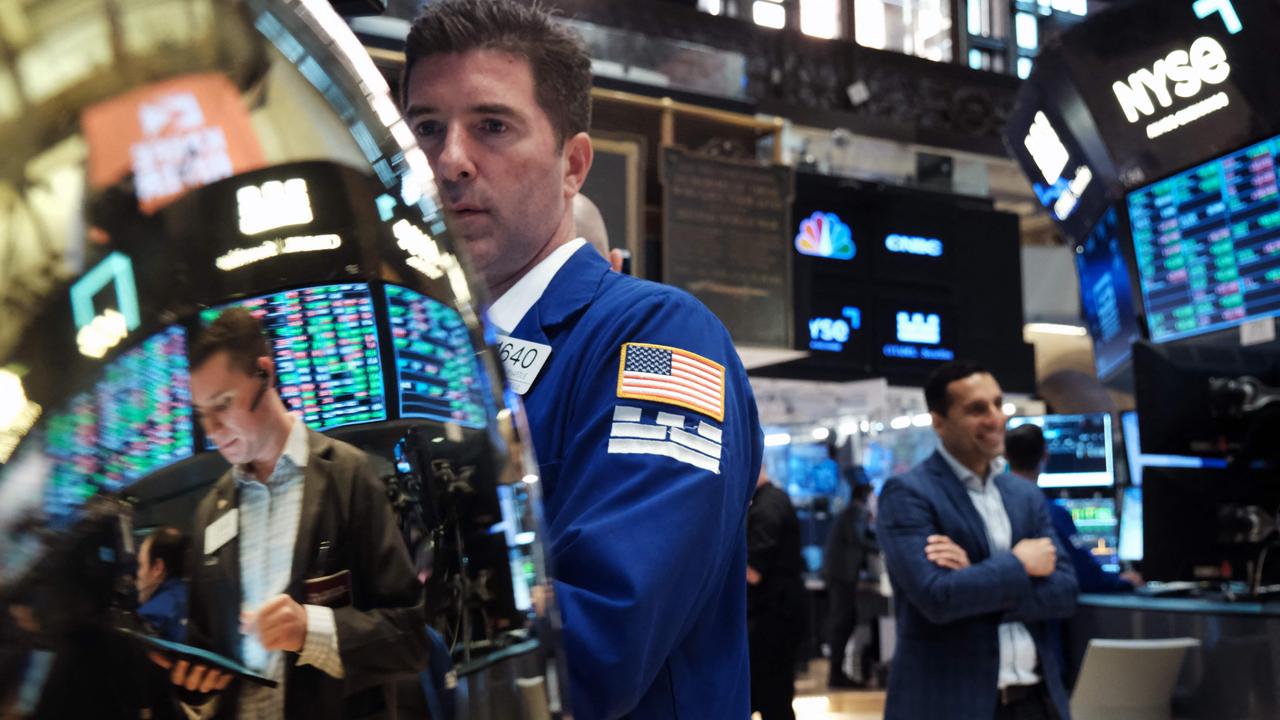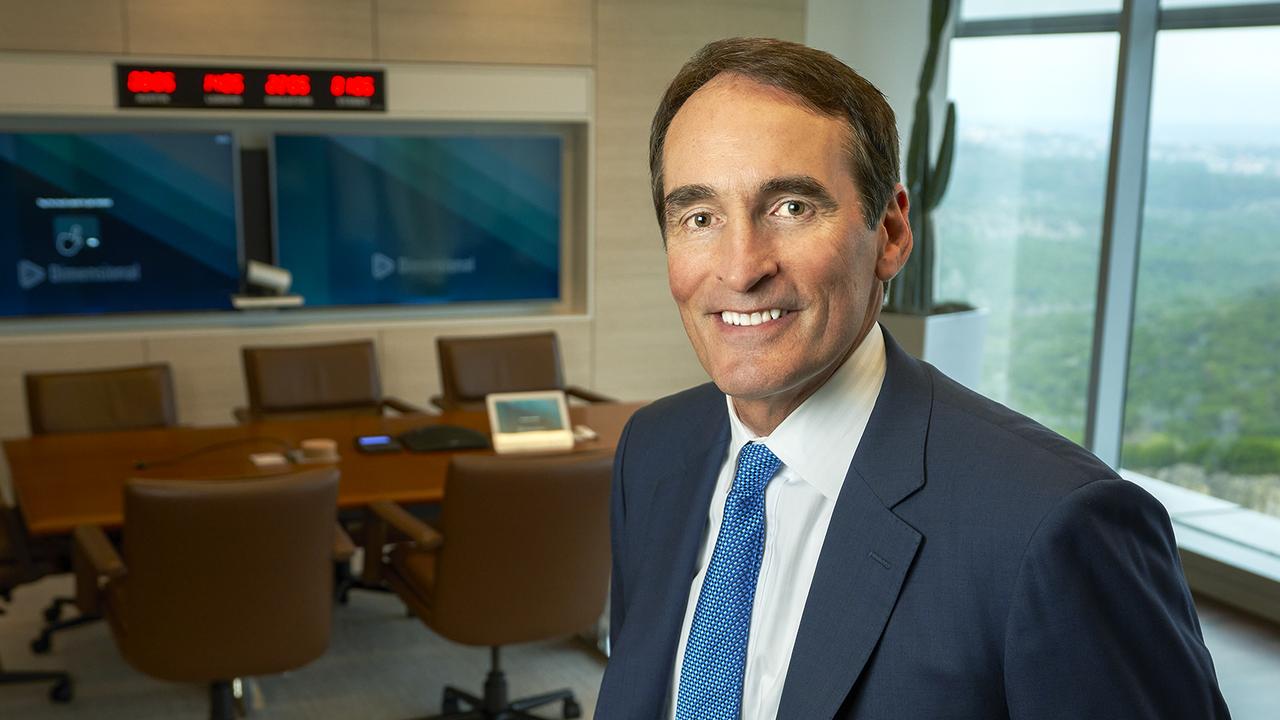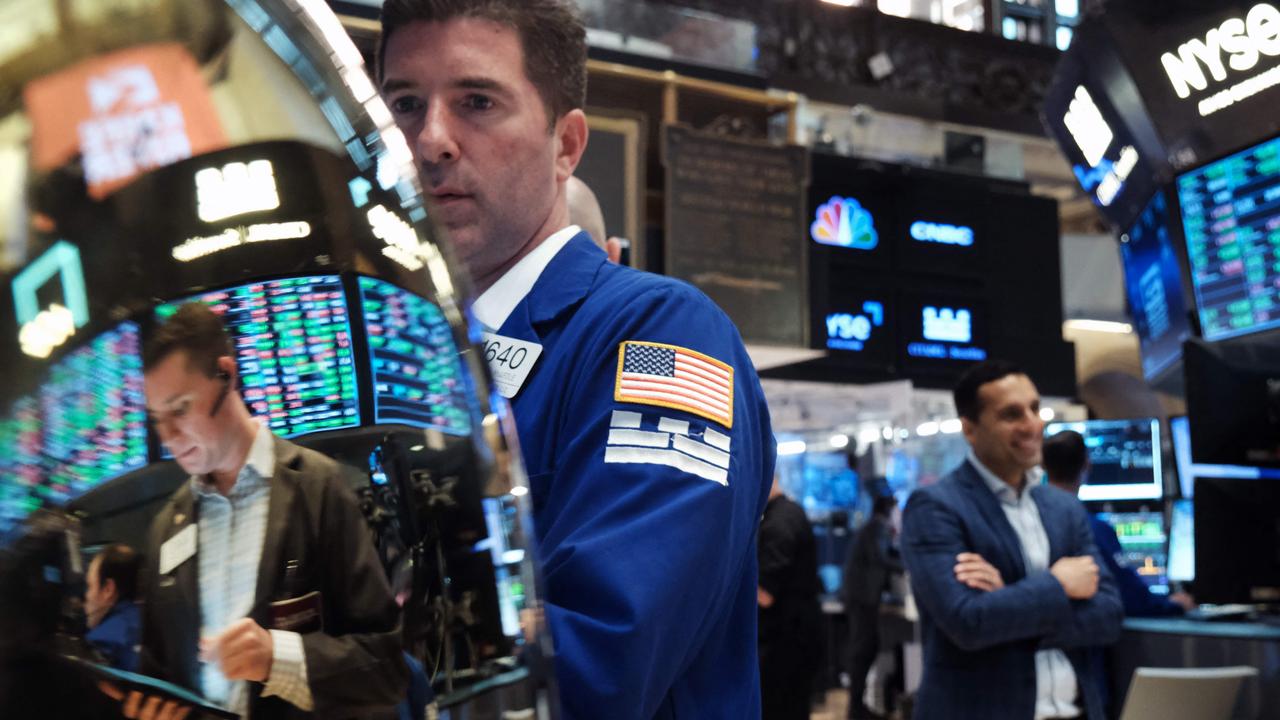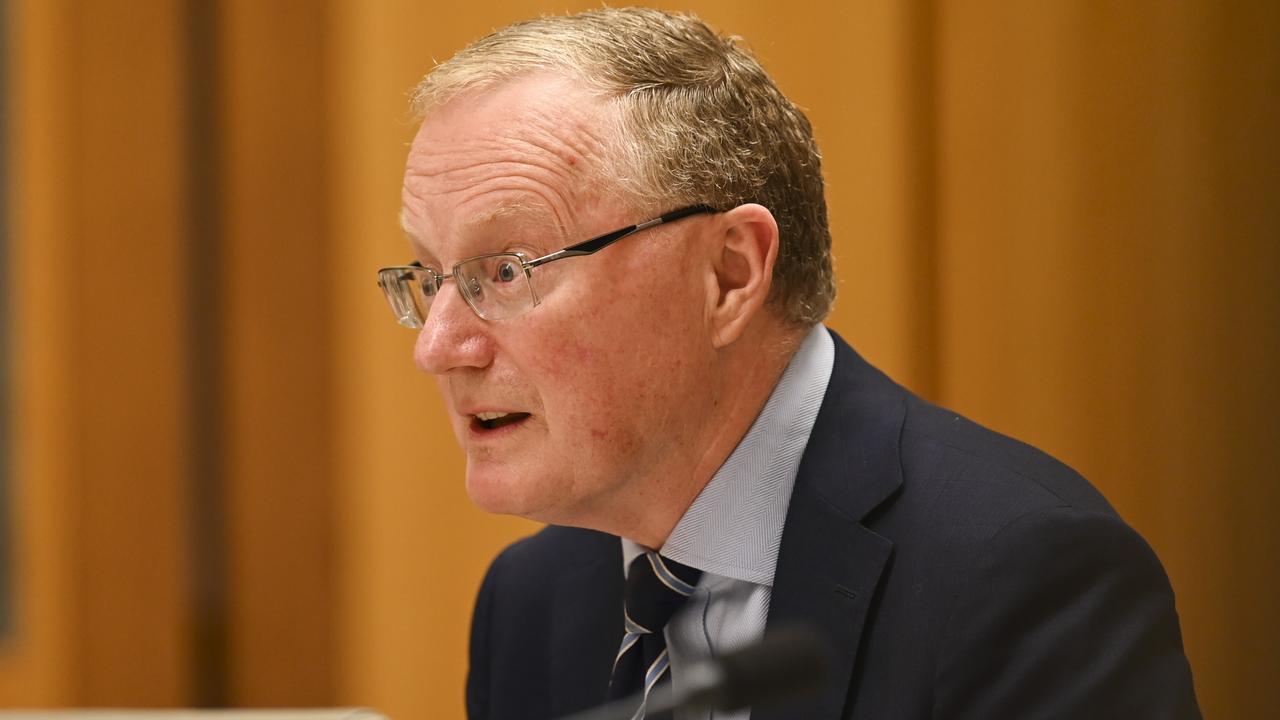Dimensional Funds boss says AI won’t outsmart the markets
Dimensional is the world’s biggest fund manager that you have never heard of. And it is backing markets over machines.

When it comes to the smartest people in the room, the super-sized Dimensional Funds usually has an edge over others.
At last count the $US615bn US fund manager, which traces its lineage back to Chicago’s Booth School of Business, had four Nobel Prize winners in its ranks. There are also another 20 staff with PhDs.
Co-CEO Dave Butler, a one-time rookie with NBA team Boston Celtics, is quick to say he is not one of them, but they were all with the fund manager before they became Nobel Prize winners. The most recent – Doug Diamond – was awarded a Nobel last October for his well-timed research into banks and financial crises.
“It’s the foundation of what we are – we have people who are at the highest levels who are looking at markets,” Butler tells The Australian.

The Austin, Texas-headquartered Dimensional Funds Advisers is one of the world’s biggest fund managers that you have never heard of. The firm, which also counts $40bn in funds under management in Australia, sits right at the heart of the active versus passive investment debate, although Dimensional brings its bookish bent to the fight. Indeed, Butler’s co-CEO Gerard O’Reilly has a PhD in aeronautics.
Dimensional was co-founded by David Booth, who is now chairman, and became one of the first to offer index-style and low-cost stock investing built on the theory it is impossible to beat the market over time. Dimensional’s speciality was the small cap index. Its original micro cap fund has an impressive 41-year track record at the end of May and has delivered annualised returns of 11.17 per cent. But Dimensional’s “systematic activism” overlay means it has beaten its benchmark, the Russell 2000 small cap index, by 160 basis points a year over those four decades.
The investment manager now oversees hundreds of fund options that are distributed through financial advisers, including ETFs, although Butler says Dimensional takes “the best of indexing and adds value on top of that” by anticipating the natural distortions that come with managing a basket of shares.
This might include moving early as indexes are turned over or not keeping to a pure market capitalisation weighting. At the heart is the philosophy of indexing.
It seeks to capture known market premiums – the equity premium over bonds, small caps versus large caps and value premium – in the most efficient way. The aim is to beat the market without trying to outguess it.
So can Dimensional really outperform a top stock picker that is paid to get deep under the bonnet of a company?
“It becomes kind of a philosophical question: do the markets work?” Butler says. “One way to consider that question is to look at the actual performance of active managers against an index. The data for the last 60 years has been pretty significantly clear that the active managers don’t add value on average,” Butler says.
“There’s an occasional manager that does, but then that manager hasn’t been able to consistently add value over time. The whole concept of indexing is really about that, as our markets in equilibrium or efficient markets reflect all the information.

“There are millions and millions of pieces of information that go into something called the price. And Dimensional’s view is we think that the heroes are the price, the price reflects all information.”
The addition of powerful computers and artificial intelligence into markets won’t change Dimensional’s investment style. While it may speed up processes for efficiency, “I don’t see anything suggesting that AI is going to be able to outperform the market.”
While the past two years have shown markets are volatile, Butler says the key is holding investments over the long term. “This will help avoid the fear and the greed and emotions that come with markets moving in one direction or the other. The people that can do that are going to have a great investment outcome.
“What we try to preach is long-term investment: buy and hold and keep your costs low,” he says.
Butler, measuring just over two metres tall, w drafted by the Boston Celtics in 1987, but went on to play in professional leagues in Turkey and Japan. An injury sent him back to business school and a stint with Merrill Lynch before joining Dimensional nearly three decades ago. He was named co-CEO in 2017.
“My ‘aha moment’ over the years is a recognition how similar sport and business are,” he says.
“It starts with the team and with collaboration. There is a mission or an energy or passion around a certain focus. So the great coaches have always been very, very clear about what they want to accomplish,” he says.
$20bn cushion
The big four banks have quietly topped up their provisions for potential lending losses by $1bn over recent months, and between them their balance sheets are now sitting on a record $20bn “cash cushion”.
Inside the banks no one is anticipating losses anywhere near that magnitude and the top executives are still calling a soft landing, with few signs of real stress. It comes off a period of record low lending losses and several years where banks have been unwinding provisions rather than adding to their cash pile.
However they are now preparing for the worst with every major forecaster tipping a sharp slowdown in the economy between now and the end of the calendar year, and this is hard to ignore.
It’s coming down to a lineball call whether the Reserve Bank hikes the cash rate, pushing it to 4.1 per cent, on Tuesday. But economists are already increasing their terminal rate – that is where the cash rate is expected to top out.
In the past week ANZ, Goldman Sachs, Nomura and RBC upped their estimate to 4.35 per cent, arguing this is what will be needed to bring inflation under control.

RBA governor Philip Lowe last week told a Senate committee the risks to inflation are “more to the upside” and said he was watching how higher wages growth was adding to inflation.
In handing down a 5.75 per cent wage increase to millions of low-paid workers on Friday, the Fair Work Commission argued the decision won’t have an impact on broader inflation through the economy. Indeed the FWC said there was no evidence that wage decisions around low-paid workers were contributing to a wage-price spiral. Even so, the figure is likely to be looked at with concern at the RBA. Nomura’s Andrew Ticehurst said it will act as a beacon for other workers.
Monthly inflation data released last week rose sharply this week, from 6.3 per cent to 6.8 per cent — although the monthly series remains volatile and carries less weight than quarterly numbers.
However, closely watched Westpac economist Bill Evans is still tipping a terminal rate of 3.85 per cent, saying the RBA will hold as it lets the delayed lag of back-to-back rate hikes start playing out. While the RBA’s tightening bias remains, there are too many uncertainties ahead – particularly with GDP figures to be released on Wednesday, Evans says.
Indeed these will show the economy slowed in the March quarter but it will also give an insight into the direction of other major areas of concern for the RBA, including the savings rate; productivity; labour costs and inflation.
Discretionary retailers are starting to feel the pinch, with homewares retailer Adairs the latest to issue a profit warning, sending its shares down nearly 15 per cent on Friday. More broadly there has been increased promotional activity across fashion, electronics and general merchandise in a sigh that sales are slowing.
While the slowdown is clearly coming, for banks the most watched figure is unemployment and this is where the lending losses follow. As long as people have jobs and cashflow the mortgage is paid. One vulnerability is around commercial property where losses can rise much quicker than housing, which is often seen as a forward indicator for stresses in other parts of the business.
johnstone@theaustralian.com.au
More Coverage
Originally published as Dimensional Funds boss says AI won’t outsmart the markets









